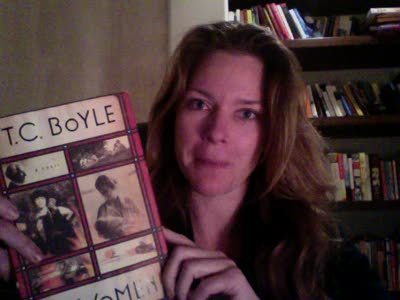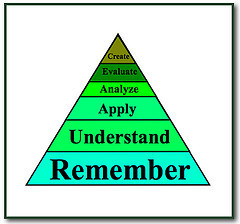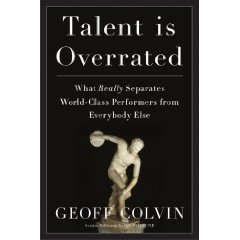Justine Musk's Blog, page 46
February 6, 2010
tribal writer cool books giveaway 1-3
I have too many books, so I'm giving 100 of them away, for the fun and good karma….
If you're interested in the chance to get any of the 3 books mentioned in the below video, send me a note at soulful@me.com. I'll choose the winners on Monday.







February 4, 2010
the key to a strong middle act (and what I learned from my mistakes)

The middle act is a bitch.
The middle act defeats many a formidable writer.
I'm approaching the middle of my own novel-in-progress THE DECADENTS. I was reading James Scott Bell's book PLOT AND STRUCTURE and it occurred to me that I need to think of the middle act as a crucible.
A 'crucible' is a melting pot: a vessel made of material that is used for high temperature chemical reactions. It makes me think of disaster films. I always like the idea of disaster films (even if the films...
February 1, 2010
13 ways to create compelling characters

1. Make the character exceptional at something.
Give your character a trait or skill that makes him or her admirable in some way.
It doesn't have to be anything over-the-top. Maybe she's an average Jane who works as an office manager…but she's also an amazing cook. Maybe he's a rebellious teenager…who's also unusually perceptive.
As soon as that character is really good at something, the reader perks up. The reader gets interested.
2. Make the character care about someone other than...
January 28, 2010
the attention economy and the case for compelling fiction: what it is, why you need to write it
1
Writing fiction in the digital age means dealing with the realities of the attention economy.
Content is everywhere. Information is everywhere. Attention, as Michael H Goldfaber points out in WIRED magazine remains limited. There are only so many minds per capita, and each mind pays attention to one thing at a time (just like you are paying attention to this blog post right now).
If economics "is the study of how a society uses its scarce resources", then the scarce and desirable something...
January 27, 2010
what the kindle taught me about my reading habits, and why the print novel will never die (maybe)

1
I once had an argument with my ex-husband (okay, we had many arguments, but that's not the point) about the future of traditional publishing: within five to ten years, he declared airily, print publishing would cease to exist.
No way, said I, because people still like and need the physical, the tangible. No matter how digital our world gets, we still exist within flesh-and-blood bodies that crave satisfaction of the senses. And there is a sensual component to reading, as any book lover...
January 25, 2010
why the Kindle makes me want to be a more compelling writer
1
I buy books like a maniac. For readers like me, a Kindle makes economic sense. In theory.
In actual practice, downloading books onto my Kindle instead of buying the more expensive, book-object versions hasn't saved me any money. It just means I can download more books.
And I do.
I can read about a book in a magazine — or (more likely) somewhere online — and reach into the air and grab it. It's mine. It's the microwave equivalent of book-buying. Thirty-five seconds and you're done.
2
One of...
January 22, 2010
how to get ahead as a writer: putting the deliberate into deliberate practice, part two

Part One is here
1. READ.
a manifesto about this– and I'm not talking casual, three-books-a-year reading, or even three books a month. John D MacDonald put the standard at three books a week (tip: it helps to get rid of your TV set). Stephen King says that reading "is the creative center of a writer's life."
Read books. Lots of books. Especially the type of books you think you want to write.
And honestly, so few aspiring...
January 21, 2010
the secret to becoming a successful published writer: putting the 'deliberate' into 'deliberate practice'

You might love or hate Malcolm Gladwell, but since his book OUTLIERS came out the idea of "10,000 hours" has entered mainstream culture.
Gladwell argues:
When we look at any kind of cognitively complex field — for example, playing chess, writing fiction or being a neurosurgeon — we find that you are unlikely to master it unless you have practiced for 10,000 hours. That's 20 hours a week for 10 years.
I first heard this idea not from Gladwell but a writing teacher over twenty years ago, when I...
January 19, 2010
how to hook me with your author blog and make me follow you (and buy your books) with the devotion of a dachshund

There's an article in the latest issue of Writer's Digest that takes you through the "7 steps of starting an author blog". It's a helpful article and worth reading.
The problem with these articles aimed at writers — particularly fiction writers — particularly unpublished fiction writers who don't have a following beyond their relatives (and maybe a few supportive friends) — is that they don't really explain the point of having an author blog in the first place.
Or rather: the point of a blog...
January 17, 2010
the problem with outlines and word quotas (and why they sometimes might lead to sucky writing)

1
I believe in outlines. Except when I don't.
I believe in daily word quotas. Except when I don't.
What I do believe in is encountering the work, which an outline can prevent you from doing.
2
Last week I was struggling with a scene in my novel-in-progress (THE DECADENTS). I had it in outline and knew what was going to happen. Two of my major characters are at the start of an uneasy attraction that will take them in a dark (and supernatural) direction. The man makes a proposition to the...



